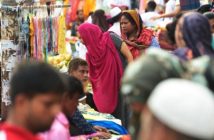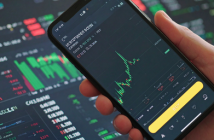The Department of Animal Husbandry and Dairying marked World Veterinary Day 2025 with a national workshop in New Delhi, highlighting the crucial role of veterinarians in India’s livestock sector. Union Minister of State for Fisheries, Animal Husbandry and Dairying and Panchayati Raj, S.P. Singh Baghel, inaugurated the event, emphasizing that veterinarians form the backbone of rural economies and national biosecurity. With India being home to **536 million livestock**, nearly **70%** of rural households rely on animals for livelihood, making veterinary professionals indispensable to agricultural and economic sustainability.
Baghel stressed the need for strengthening veterinary infrastructure and skill development, aligning with the government’s commitment to future-proofing India’s animal health systems. He reaffirmed support for indigenous livestock breeds, advocating for **100% adoption of in vitro fertilization (IVF)** and sex-sorted semen to enhance productivity and breed quality. He also underscored the role of digital platforms like the **National Digital Livestock Mission** for improving traceability and disease surveillance.
The government’s **National Animal Disease Control Programme (NADCP)** was highlighted as a crucial initiative in combating **Foot and Mouth Disease (FMD)**. Over **114.56 crore FMD vaccines** and **4.57 crore Brucellosis vaccines** have been administered so far, with the program aiming to eliminate FMD by **2025** and achieve complete eradication by **2030** through vaccination campaigns.
Secretary of the Department of Animal Husbandry and Dairying, Alka Upadhyaya, joined virtually, calling for a comprehensive overhaul of veterinary education in India. She emphasized India’s global leadership in dairy production, egg supply, and meat production, urging more **academic conferences, increased veterinary college seats, and enhanced training in surgeries and livestock medical care**. She stressed that veterinarians serve as the first line of defense against zoonotic diseases and must be equipped with better surveillance systems and synchronized vaccination protocols.
The event also featured an address from **FAO Assistant Director-General and Chief Veterinarian, Dr. Thanawat Tiensin**, acknowledging India’s leadership in **global One Health initiatives** and its recognition under the **Pandemic Fund for Animal Health Preparedness**. **Animal Husbandry Commissioner Abhijit Mitra** highlighted India’s advancements in **early disease detection, digital tracking systems, and mass vaccination campaigns**, noting that animal welfare is vital for ensuring food safety and preventing future pandemics.
The workshop showcased high-impact technical sessions on **generic medicines, prevention of zoonotic transmission, integrated disease surveillance**, and improving coordination between human and animal health sectors. A **national veterinary quiz** connected students across India, reinforcing the importance of expertise in animal health.
More than **250 delegates** attended the event, including officials from **ICAR, FAO, WOAH, WHO**, and leading veterinary universities, with **3,000 virtual participants** joining via livestream. The discussions reinforced the significance of collaboration among **veterinarians, scientists, public health experts, and farmers**, reflecting the theme **”Animal Health Takes a Team.”**
The workshop underscored the government’s commitment to **strengthening veterinary education, modernizing infrastructure, and ensuring sustainable livestock practices**, reaffirming veterinarians’ indispensable role in India’s agricultural and economic success.





